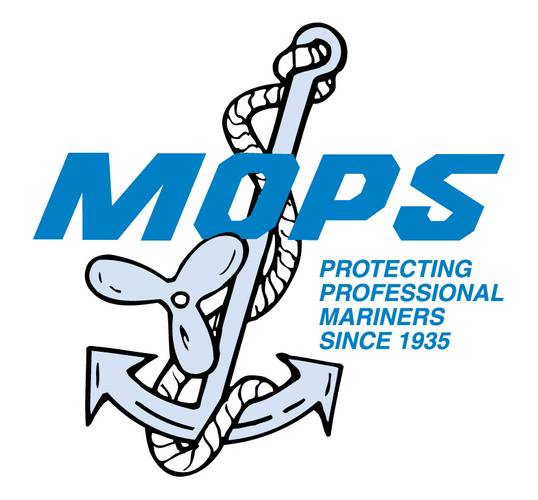SAFETY: Distractions Can Sink Careers
Familiarity can and does breed contempt. You don’t need anything else added to that heavy burden.
We live and work in a frenetic environment replete with a wide range of both human and technological distractions. When those two elements came together on the bridge of a towboat traveling downriver to pick up a load of empty barges, the result was career-changing for the vessel’s first mate, who was on the wheel. It was yet another costly reminder of the need for professional mariners to give their often dangerous jobs their undivided attention and to stay focused on the task at hand.
Adding more variables to the pre-casualty mix was the fact that it was a nighttime move. While certainly not an unusual circumstance on today’s busy inland waterways, that fact doesn’t make nocturnal trips any less hazardous. Onboard activities that seem straightforward in the light of day take on a decidedly different complexion after the sun sets and darkness envelopes the river and waterfront. And, while navigational aids on the river and electronic equipment onboard clearly assist nighttime vessel movements, many veteran towboat and tug operators will tell you that fatigue, boredom and endless repetition in the sensory-deprived environment of darkness still present very formidable challenges to even the most experienced rivermen.
Distraction Suspected
These conditions were indeed prevalent in the swift moving western U.S. river on a chilly late autumn night as a workboat left the safety of its riverside dock just after midnight to travel south to meet with and make up a small flotilla of eight empty barges for delivery to a riverside mill the following morning.
The weather was partly cloudy with a gusty wind of up to 20 knots on a moonless night when the first mate guided his vessel away from the dock enroute to an overnight assignment. During departure preparations, he had been distracted by an animated conversation on his radio telephone with a deckhand. Perhaps because of his agitated state and temporary lack of concentration, he was unaware of the fact that his towboat was slowly drifting to port and the safety of the dredged channel as it made its way downriver. Eventually, he acted to adjust his course to starboard.
Too Late to Recover
Before he could alter course, he heard a loud scraping sound on his portside and felt his vessel slow and veer further out of the channel. Eventually, he slowly maneuvered the vessel off the mostly sandy bottom to starboard and deeper water. Unfortunately, the damage was already done and the unmistakable odor of spilled petroleum product and his now balky engine convinced him to return to the dock he had departed from less than 20 minutes earlier.
Once back and tied securely to a remote dock away from other vessels, preliminary inspections were conducted and revealed that not only had the vessel suffered moderate structural damage below the waterline of its portside from the grounding, but also was likely continuing to leak fuel, and possibly oil from its propulsion system. At daybreak, a clearly visible sheen was spotted near the towboat and the dock to which it was tied. Ironically, it was quickly determined by testing that the oil producing the sheen came from another vessel and had nothing to do with the damaged towboat. Ultimately, any petroleum product because of the grounding had long since drifted downriver making it difficult to connect to the towboat’s casualty.
The Investigation
Once his vessel was secured, the mate notified his company dispatcher of the incident who then reported it to the local Coast Guard office. He then called his license insurer’s 24-hour claim reporting hotline and within minutes was speaking with a local maritime lawyer assigned to handle his defense. The Admiral attorney not only helped to calm him down, but more importantly, provided him with guidance to prepare him for his impending initial Coast Guard interview which took place at the dock.
Sadly, deciding not to wait for the results of the Coast Guard’s and/or its own investigation, the mate’s furious employer terminated his employment contract within eight hours of the casualty.
The mate’s career was now in the hands of the Coast Guard investigators working the case. That being the situation, he met at length with his lawyer to prepare a statement and complete the CG2692 marine casualty report form. And in those frank discussions with his maritime attorney, he reluctantly conceded his belief that, although the towboat had grounded outside of the channel, he maintained that it had not left the channel before the initial point of impact with an unchartered object on the bottom.
Predictably, and less than two weeks later, the licensed deck officer was contacted by the local Coast Guard Marine Safety Office (MSO) and directed to come in for a more in-depth interview related to the facts surrounding the grounding and, at that point of the inquiry, possible spill. He attended the interview with his maritime attorney by his side.
Cell Phone Use Investigated
During the interview, it became clear that the Coast Guard investigators suspected that the mate was inattentive to his professional duties and grounded because he was distracted while using his cell phone on a personal call. Aware of his earlier heated discussion on his radio telephone, investigators suspected that, once underway, he continued the argument with the previously fired deckhand on his personal cell phone. Pursuing that suspicion, the USCG’s investigating officer requested to see the mate’s cell phone records for the period several hours before the early morning grounding. Knowing that the records would be subpoenaed if they did not comply, the maritime attorney instructed his client to contact and procure them from his cell phone carrier. Thankfully for him (and his license), the mate’s insistence that he had neither made nor received any personal cell phone calls in the critical pre-grounding timeframe was confirmed by his mobile phone’s time-stamped records.
While clear of that suspicion by investigators, the now unemployed mate still had to confront impending negligence charges being brought by the Coast Guard for the actual grounding and suspected minor spill.
A Welcome Offer
Prior to bringing negligence charges which would have subsequently led to Suspension & Revocation (S&R) proceedings, the Coast Guard surprisingly proposed a settlement offer of the case. The offer stipulated that the mate would accept a three-month suspension of his USCG license, remitted on a three-month probationary period. The net result being that the mate, assuming he could find new employment on the water, would be allowed to work under his license as long as he had no further reportable incidents during the 90-day probationary period. Not surprisingly, the settlement offer also mandated him to enroll in and successfully complete a Bridge Team Management course of 24 hours or more duration.
After consulting with his attorney and weighing the unlikely chances of receiving a better outcome if he rejected the Coast Guard’s offer, he decided to accept and sign the settlement agreement. He prudently concluded that the thought of being charged with negligence and facing S&R proceedings, particularly with no source of income, was far more daunting than successfully completing his probationary period and attending the prescribed course.
While this case had a relatively positive outcome for the mariner because of prompt reporting, quick attorney intervention and the mate’s good sense, clearly the Coast Guard’s strategy and the mate’s ultimate fate would have been decidedly different if his cell phone records revealed that he was using his device while on duty the night of the grounding.
Not Worth the Risk
It’s a fact of life that rarely a day goes by when news reports of some transportation accident is not attributed to operator distraction of some kind – typically involving a hand-held electronic device. The message to professional mariners operating commercial vessels on America’s waterways remains the same: That phone call, text, or email can wait until the end of the trip or duty period.
Randy O’Neill is Senior Vice President with Lancer Insurance Company and has been Manager of its MOPS Marine License Insurance division since 1984. O’Neill has spoken and written on many occasions on the importance of USCG license protection. He is a regular contributor to MarineNews magazine and the opinions expressed in this article are his alone. He can reached at: [email protected]
This article first appeared in the May 2019 print edition of MarineNews magazine.

















